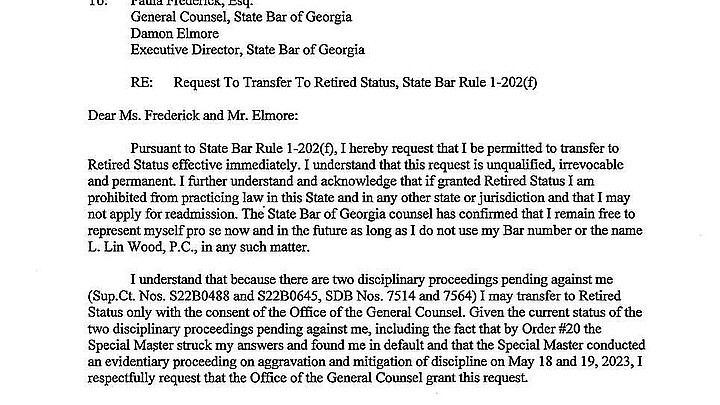Business
Florida orange production up, cost of OJ below other food prices despite inflation
Florida's projected crop production is an estimated 2 million box increase from the previous month, the cost for consumers to purchase Florida orange juice is lower than than other food despite inflation.
June 28, 2022 11:28am
Updated: June 29, 2022 12:51pm
There’s a silver lining to some of the hardship Florida citrus producers have faced over the past several years. Their projected crop production is an estimated 2 million box increase from the previous month, the cost for consumers to purchase Florida orange juice is lower than other food despite inflation, and their congressional delegation is advancing a bill to reform FDA standards to help growers.
Florida’s orange production is expected to surpass more than 40 million boxes in the 2021-2022 season, according to a USDA May production forecast, an increase of 2 million boxes from its April forecast.
Florida Grapefruit production is projected to decrease slightly to 3.4 million boxes; Florida Specialty Citrus is expected to remain at 800,000 boxes, according to the forecast.
“Given everything this industry has been through over the past several years, particularly with the weather, 40 million boxes of oranges is something to be proud of,” Shannon Shepp, executive director of the Florida Department of Citrus, said in a statement. “We are nowhere near where we once were, but it is clear there is a vast number of dedicated people working together to figure out what recovery looks like. Florida Citrus remains a vital and significant player in the State’s economy and that won’t change any time soon.”
While inflation is causing costs across the board to go up, the year-over-year price increase for Florida orange juice remains below the national average of food price increases, says Steve Johnson, chairman of the Florida Citrus Commission, which oversees the Florida Department of Citrus. And Florida OJ sales are up.
“As prices continue to rise across the board for goods and services, many shoppers may find themselves buying not what they want but what they need,” Johnson said, and the good news is sales of Florida orange juice remain strong when compared to 2019 sales. “While the orange juice category has not been immune to the pressures of inflation, the year-over-year price increase of OJ remains below the national average of increases in prices of food at home.”
Since last July, the department’s marketing and eCommerce program has driven more than $65 million in attributed sales of Florida orange juice, surpassing its goal of $30 million. A new campaign begins July 1 to continue to boost Florida citrus sales.
As the department and others have been working with the industry to address a range of challenges, Florida’s congressional delegation has also been doing its part to help growers.
U.S. Sens. Marco Rubio and Rick Scott introduced a bipartisan bill earlier this month to protect the Florida orange industry. The Defending Domestic Orange Juice Production Act would direct the U.S. Food and Drug Administration (FDA) to amend citrus standards to support local growers.
Over the years, in order to meet decades-old FDA standards and remain viable, growers have had to import and mix juice from foreign oranges.
The proposed bill would direct the FDA to lower the required level of sugar/solids content for not-from concentrate pasteurized orange juice from 10.5% weight of orange juice soluble solids to 10%.
“Forcing the orange juice industry to import and mix juice from foreign oranges to meet an arbitrary FDA standard would mean the end of Florida orange juice,” Rubio said. “This commonsense bill will provide relief to Florida citrus growers and processors who have faced challenges in recent years due to disease and hurricanes, and allow them to continue marketing Florida orange juice.”
“In recent years, Florida citrus has faced significant challenges such as pests, disease, and severe weather, which has had a devastating impact on Florida’s citrus growers and processors,” U.S. Rep. Mario Díaz-Balart said. “Lowering the minimum requirement of fruit sugar levels in Florida’s orange juice not only maintains the same quality it has always been known for, but it also ensures that our growers and processors have the flexibility to continue producing in Florida and not depend on foreign imports that will increase prices for consumers and threaten the very existence of the industry.”
The conditions her colleagues have mentioned, Rep. Debbie Wasserman Schultz, a Democratic cosponsor of the bill, said have caused a natural decline in the sugar content of mature oranges. For most of last season, Florida oranges didn’t meet the federal minimum standard, which was adopted decades ago, she said.
“Despite the natural changes” to crop sugar levels, “there are no known adverse health consequences for consumers,” she added. By adjusting the FDA standards, Florida citrus growers and processors will have flexibility to be able “to produce the world’s best oranges – without sacrificing the quality and taste that we all love,” she said.
Joining Wasserman Shultz, Democratic representatives who cosponsored the bill include Rep. Charlie Crist, who’s running for governor, and Reps. Al Lawson, Stephanie Murphy, and Darren Soto. Joining Díaz-Balart, Republican representatives who cosponsored the bill include Vern Buchanan, Scott Franklin, Carlos Gimenez, Bill Posey, John Rutherford, Maria Elvira Salazar, Gregory Steube, and Daniel Webster.










